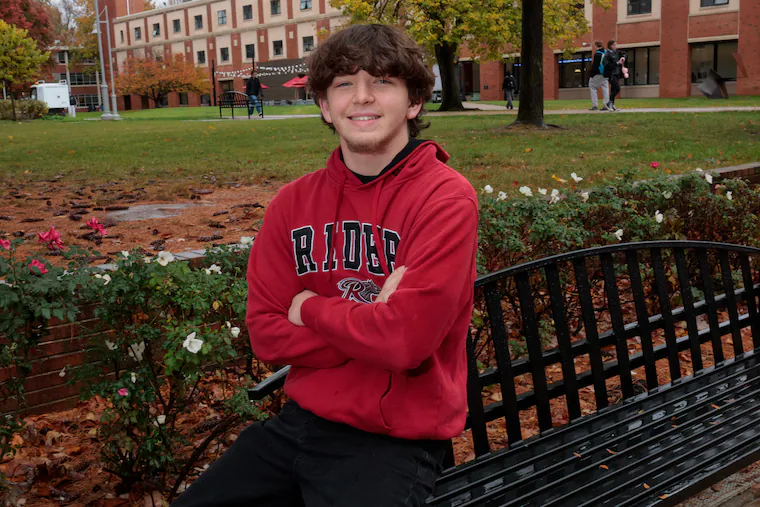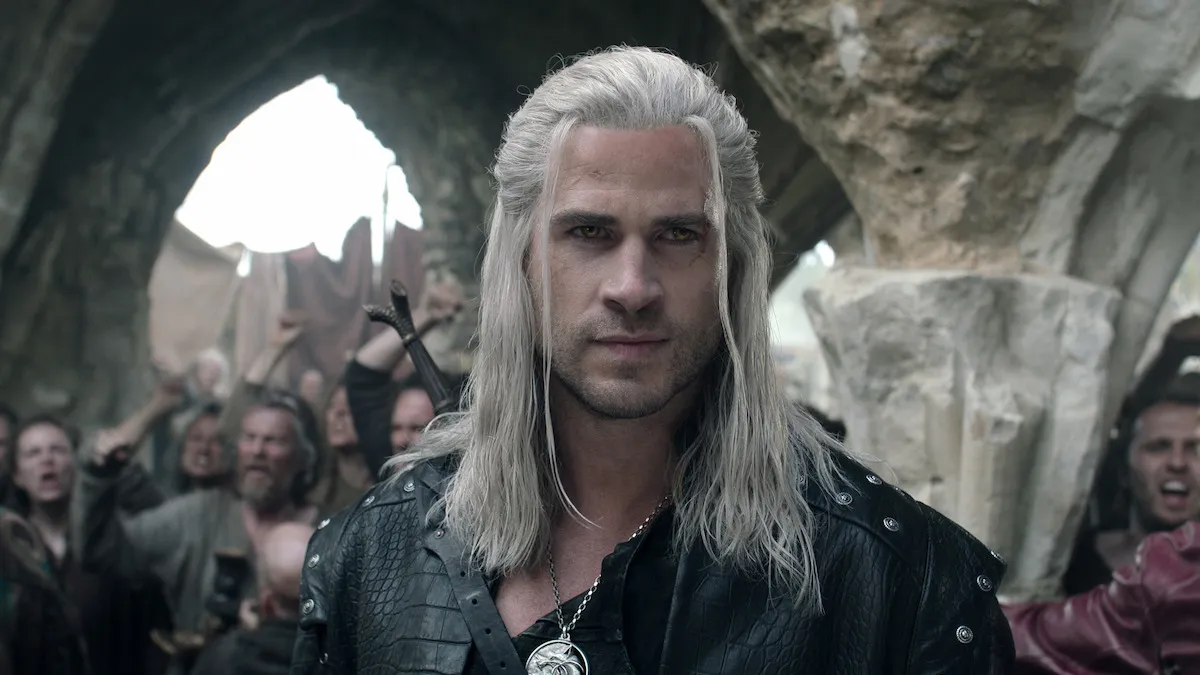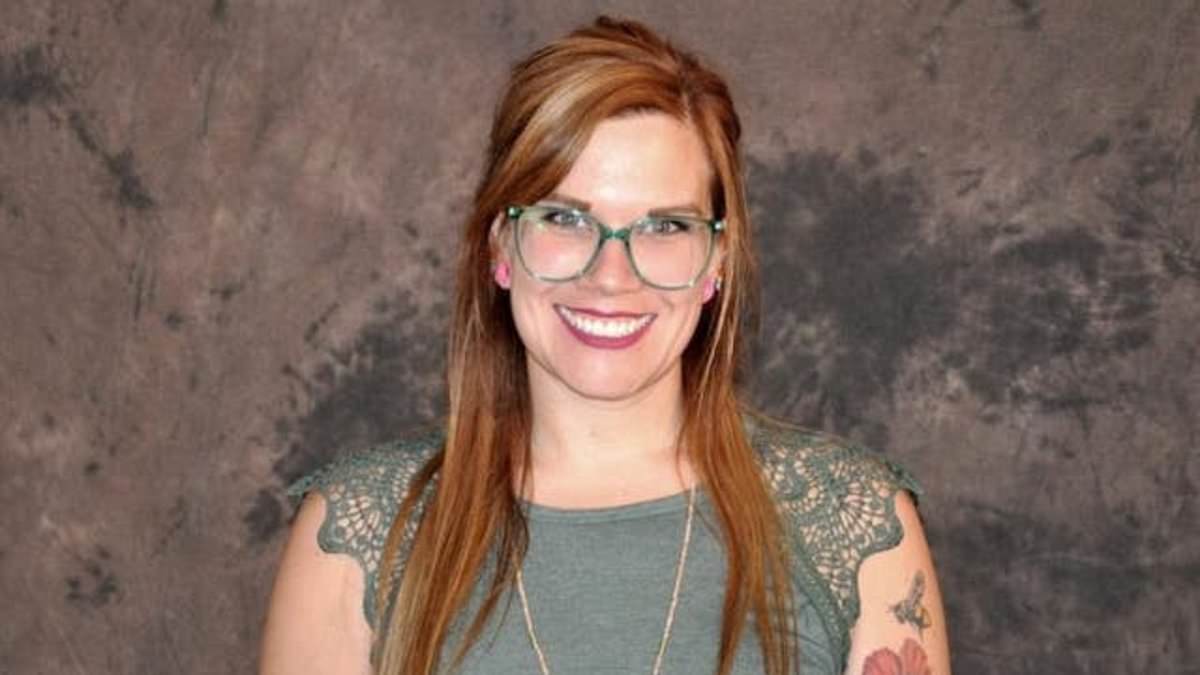Copyright The Philadelphia Inquirer

Zack Leshner has struggled to decide which candidate to vote for as New Jersey’s next governor as Tuesday approaches. “I take values from both parties and I resonate with things that both parties say,” Leshner, a political science student at Rider University who works in retail, said a week before the election. Leshner, 19, is one of more than 2.3 million unaffiliated voters in the state, making up more than a third of the electorate and a bigger share than registered Republicans. He is also part of a trend among young voters in the state straying from the two-party system. About 45% of voters under age 30 are not affiliated with any political party, compared with about 34% among voters 30 and up and just 23% among those 65 and older. These voters could play a decisive role in deciding the high-stakes contest between U.S. Rep. Mikie Sherrill, the Democratic nominee, and Republican Jack Ciattarelli, President Donald Trump’s endorsed candidate. “I really wanted to make my own decisions about how to vote, and I felt the best way to do that was just as a mental thing, to just be unaffiliated, so I could really look at who’s the better candidate here, instead of just going, ‘Oh, I’m registered with this party, so I’m going to pick this person,’” said Leshner, who grew up in Burlington Township in South Jersey. Democrats lead Republicans in registrations by more than 850,000 voters even as the GOP makes gains, but unaffiliated voters can swing the race to either party. They are the must-win group neither candidate can afford to lose. Both parties know the weight unaffiliated voters hold in New Jersey. About 36% of the state’s electorate is unaffiliated, and an additional 1% of voters are registered with third parties. Meanwhile, 38% are registered Democrats and a quarter are registered Republicans. The county with the highest proportion of unaffiliated voters is South Jersey’s Cumberland County, where about 39% of voters did not belong to a party. The lowest was Hunterdon, in the west-central part of the state, where about 29% were unaffiliated. Each county has about 100,000 voters. Among the municipalities with a disproportionately high number of unaffiliated voters are New Brunswick and South Brunswick, home to large numbers of Rutgers University students; West Windsor Township; Livingston Township; and Paramus Borough, where more than 41% of voters are not registered with a party. Democrats are hoping that Trump’s overall unpopularity with this group can turn them out for Sherrill or keep them from voting for Ciattarelli. But Republicans are betting on voters having become more accustomed to Trump and caring more about local issues than about Washington. Polls have shown unaffiliated voters are largely split on the race. Chris Russell, Ciattarelli’s campaign strategist, said Republicans have a chance to win races in the state only because of unaffiliated voters. “Jack is going to win on unaffiliated voters; the question is by how much. And so we feel they’re obviously an important piece of our calculus,” he said. “We’re working very hard to reach out to them, and making sure that we’re delivering a message that reaches across party lines, which is the message of: The state is broken and needs change, and Jack Ciattarelli is the only candidate in the race who’s capable of delivering that change.” But Sherrill’s surrogates argue that Ciattarelli’s close association with — and praise of — Trump will turn away those voters. “Many of those same independent voters who voted for Donald Trump are realizing that Donald Trump and the Republicans are not delivering on the promises they made to actually bring down costs and make their lives more affordable,” said Ken Martin, a Sherrill ally and the chair of the Democratic National Committee. The DNC poured significant resources into the nationally watched race. Through Thursday, more than 980,000 New Jerseyans had already cast a vote — either early in person or by mail. Of those, about 53% were Democrats, 29% were Republicans, and 18% were unaffiliated voters. Democrats had a 3-1 advantage over Republicans in voting by mail, and the parties were essentially even for in-person early voting, showing an uptick in GOP voters headed to the polls before Election Day. Unaffiliated voters could be undercounted in New Jersey Unaffiliated voters can vote in New Jersey primaries only if they join a party at the polls, losing their unaffiliated status unless they later change their registration. For that reason, Sue Davies, 64, believes that unaffiliated voters are undercounted in the state. “That’s coercive,” Davies said, lamenting the state’s primary process. “That’s basically telling people in order to vote, you have to be in one of the parties.” Davies is a longtime advocate for open primaries in the state. She studied political science in college with the plan to become a Democratic politician, but became “quickly disillusioned” with the party after watching Senate proceedings as a Capitol Hill intern during former President Ronald Reagan’s Republican administration. She has identified as an independent since, often voting for candidates from third parties, such as the Green Party, and vowing that she votes “for the candidate and not the party.” Davies, of Sussex County, doesn’t like Ciattarelli because of his policies and association with Trump, and she thinks Sherrill is too moderate. But she can relate to independents of all political leanings who are struggling to find a candidate to be excited about. Some will hold their noses and vote, and others will not cast a ballot at all. “I think there’s a good number of independents that aren’t going to vote,” she said. “… Most of the people I talk to are going to vote and not feel good about it.” Javier Luque Jr., 36, a Bergen County unaffiliated voter, said he wrote in “none of the above” on his mail ballot. He said he wanted a more detailed look at how the candidates would rein in the cost of living, among other issues, but said they instead provided a “milquetoast blueprint.” “All I’ve been seeing was just attack ads of the same rehashed fearmongering and fallacy-based talk,” Luque said. “Neither of these candidates worked to earn my vote.” Michael Giammarino, 57, voted early in person for Ciattarelli because he said the state has gotten too expensive with a Democrat in charge. Giammarino, an unaffiliated voter in Bergen County who teaches high school Spanish and Italian, in recent years has voted for candidates from both major parties, including Trump. Giammarino believes Ciattarelli is more familiar with New Jersey, and was turned off by what he described as Sherrill’s “word salad” approach to answering questions. “I didn’t hear him say ‘um’ once. He answered every question precisely,” Giammarino said about Ciattarelli’s debate performance. Young voters are straying from the two parties in New Jersey Leshner thinks more people in his generation want to challenge authority and not just follow in their parents’ political footsteps, while older generations could be “a little more stuck in their ways.” Leshner’s top priorities are education and affordability. He doesn’t like Ciattarelli’s support for school vouchers because his mom is a public school teacher, but he wants to be able to afford buying a home in the next five to 10 years. Both candidates say they would bring down the cost of living, but he finds Ciattarelli’s case more convincing. He’ll have to decide which priority outweighs the other. His classmate Marcos Hernandez was initially going to vote for Ciattarelli in hopes that he would lower taxes, but decided to vote for Sherrill instead. Hernandez, 19, of Monmouth County, said his views are more conservative than some of the Democratic Party positions on issues like abortion, but he also opposes the Republican Party’s approach to immigration. If he had not done any research, he said, he would have voted for the GOP nominee, but was turned off by Ciattarelli’s avid support for Israel, stances on gun rights, and fervent interest in protecting police. Ciattarelli advocates for qualified immunity for police and getting rid of processes meant to increase transparency, like use-of-force reporting when a gun is not discharged. “The police are already in a very strong position of power, and I understand that we have to have their backs because they’re the ones that keep our community safe … but I don’t feel that police need that much protection, especially within recent years when you’ve seen overreach or just, in general, getting away with things,” Hernandez said. Despite his vote, he views Sherrill as “a pretty basic, corporate-esque Democrat” and said he is not expecting much change from her. “I don’t really hold that against her,” he said. “I actually kind of welcome it in this very tumultuous time to see … not to be rude or anything, but a rather bland candidate.” He believes younger people are flocking away from the two parties because of the direction they have gone since Trump’s rise. He said the Republican Party has “just collectively lost their mind,” while the Democratic Party is “pathetic.” “Who wants to be associated with those parties?” he said.



